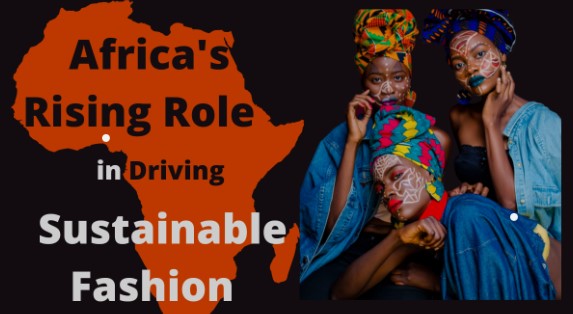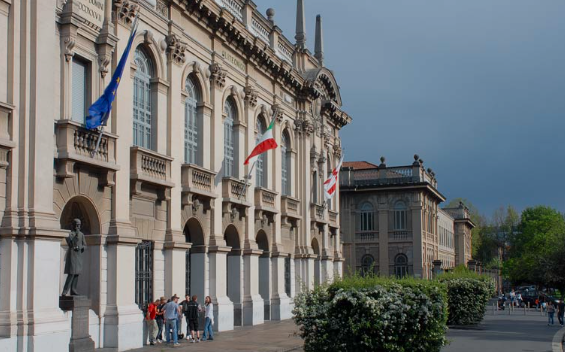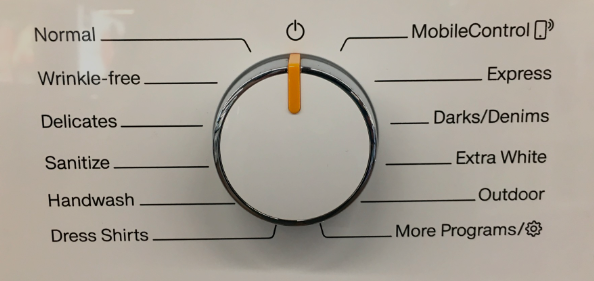Best Sustainable Laundry Practices in Africa

In recent years, the global community has heightened its focus on sustainable practices to mitigate environmental impact. Africa, a continent rich in cultural diversity, has long-standing traditions that align with eco-friendly living. This article delves into the various sustainable laundry practices adopted across Africa, shedding light on the innovative approaches and traditional wisdom that contribute to a greener and cleaner future.
Traditional Wisdom: Handwashing Techniques
1. Ubuntu Philosophy and Community Washing Rituals
In many African communities, laundry is a communal activity, reflecting the Ubuntu philosophy that emphasizes interconnectedness. Families come together to wash clothes collectively, reducing water usage and fostering a sense of community.
2. Natural Detergents from Indigenous Flora
African communities have utilized indigenous plants with natural cleaning properties for centuries. Extracts from soapberries, aloe vera, and other local flora serve as eco-friendly alternatives to chemical-laden detergents.
3. Sun-Drying Techniques
Harnessing the abundant sunlight, Africans traditionally air-dry their clothes, avoiding the energy-intensive tumble dryers. This practice not only conserves electricity but also imparts a fresh, natural scent to the clothes.
Innovative Solutions: Technological Advancements
4. Solar-Powered Washing Machines
Innovations have brought forth solar-powered washing machines in off-grid areas. These machines harness solar energy, reducing reliance on traditional electricity sources and making laundry more sustainable in regions with limited access to power.
5. Greywater Recycling Systems
To address water scarcity issues, African communities have implemented greywater recycling systems. These systems collect and filter water from washing machines, redirecting it for irrigation or non-potable household use, thus promoting efficient water usage.
6. Mobile Laundry Services
Entrepreneurs across Africa have introduced mobile laundry services equipped with water-efficient machines. These services not only provide convenience to busy urban dwellers but also incorporate sustainable practices, such as rainwater harvesting for laundry operations.
Community-Led Initiatives: Environmental Conservation
7. Eco-Entrepreneurship in Laundry
Communities have embraced eco-entrepreneurship, with individuals starting small-scale laundry businesses that prioritize sustainable practices. These enterprises often utilize eco-friendly detergents, water-saving techniques, and energy-efficient appliances.
8. Clothing Swaps and Second-Hand Markets
A growing trend in many African cities involves clothing swaps and the thriving second-hand market. This not only promotes a circular economy but also reduces the demand for new clothing production, thereby lowering the environmental impact associated with textile manufacturing.
9. Advocacy for Sustainable Policies
Communities and environmental activists advocate for policies that support sustainable laundry practices. These initiatives aim to influence government regulations and promote environmentally conscious choices in the detergent and textile industries.
Challenges and Opportunities
10. Accessibility to Sustainable Products
While sustainable laundry practices are gaining traction, accessibility to eco-friendly detergents and appliances remains a challenge. Initiatives to increase the availability and affordability of such products can significantly enhance adoption.
11. Education on Sustainable Practices
There is a need for widespread education on sustainable laundry practices. Informing communities about the environmental impact of traditional laundry methods and the benefits of eco-friendly alternatives can drive a cultural shift towards more sustainable choices.
12. Research and Development for Indigenous Solutions
Investment in research and development focused on harnessing indigenous knowledge for sustainable laundry practices is crucial. By combining traditional wisdom with modern technology, Africa can lead the way in developing innovative and culturally resonant solutions.
Conclusion
African sustainable laundry practices exemplify the fusion of ancient wisdom and contemporary innovation. From communal handwashing rituals rooted in Ubuntu philosophy to cutting-edge solar-powered machines, the continent showcases a diverse range of eco-friendly approaches. As Africa continues to navigate the challenges posed by climate change, these sustainable laundry practices stand as a testament to the continent’s commitment to environmental stewardship and community well-being.
In recent years, the global community has heightened its focus on sustainable practices to mitigate environmental impact. Africa, a continent rich in cultural diversity, has long-standing traditions that align with eco-friendly living. This article delves into the various sustainable laundry practices adopted across Africa, shedding light on the innovative approaches and traditional wisdom that contribute to a greener and cleaner future.
Traditional Wisdom: Handwashing Techniques
1. Ubuntu Philosophy and Community Washing Rituals
In many African communities, laundry is a communal activity, reflecting the Ubuntu philosophy that emphasizes interconnectedness. Families come together to wash clothes collectively, reducing water usage and fostering a sense of community.
2. Natural Detergents from Indigenous Flora
African communities have utilized indigenous plants with natural cleaning properties for centuries. Extracts from soapberries, aloe vera, and other local flora serve as eco-friendly alternatives to chemical-laden detergents.
3. Sun-Drying Techniques
Harnessing the abundant sunlight, Africans traditionally air-dry their clothes, avoiding the energy-intensive tumble dryers. This practice not only conserves electricity but also imparts a fresh, natural scent to the clothes.
Innovative Solutions: Technological Advancements
4. Solar-Powered Washing Machines
Innovations have brought forth solar-powered washing machines in off-grid areas. These machines harness solar energy, reducing reliance on traditional electricity sources and making laundry more sustainable in regions with limited access to power.
5. Greywater Recycling Systems
To address water scarcity issues, African communities have implemented greywater recycling systems. These systems collect and filter water from washing machines, redirecting it for irrigation or non-potable household use, thus promoting efficient water usage.
6. Mobile Laundry Services
Entrepreneurs across Africa have introduced mobile laundry services equipped with water-efficient machines. These services not only provide convenience to busy urban dwellers but also incorporate sustainable practices, such as rainwater harvesting for laundry operations.
Community-Led Initiatives: Environmental Conservation
7. Eco-Entrepreneurship in Laundry
Communities have embraced eco-entrepreneurship, with individuals starting small-scale laundry businesses that prioritize sustainable practices. These enterprises often utilize eco-friendly detergents, water-saving techniques, and energy-efficient appliances.
8. Clothing Swaps and Second-Hand Markets
A growing trend in many African cities involves clothing swaps and the thriving second-hand market. This not only promotes a circular economy but also reduces the demand for new clothing production, thereby lowering the environmental impact associated with textile manufacturing.
9. Advocacy for Sustainable Policies
Communities and environmental activists advocate for policies that support sustainable laundry practices. These initiatives aim to influence government regulations and promote environmentally conscious choices in the detergent and textile industries.
Challenges and Opportunities
10. Accessibility to Sustainable Products
While sustainable laundry practices are gaining traction, accessibility to eco-friendly detergents and appliances remains a challenge. Initiatives to increase the availability and affordability of such products can significantly enhance adoption.
11. Education on Sustainable Practices
There is a need for widespread education on sustainable laundry practices. Informing communities about the environmental impact of traditional laundry methods and the benefits of eco-friendly alternatives can drive a cultural shift towards more sustainable choices.
12. Research and Development for Indigenous Solutions
Investment in research and development focused on harnessing indigenous knowledge for sustainable laundry practices is crucial. By combining traditional wisdom with modern technology, Africa can lead the way in developing innovative and culturally resonant solutions.
Conclusion
African sustainable laundry practices exemplify the fusion of ancient wisdom and contemporary innovation. From communal handwashing rituals rooted in Ubuntu philosophy to cutting-edge solar-powered machines, the continent showcases a diverse range of eco-friendly approaches. As Africa continues to navigate the challenges posed by climate change, these sustainable laundry practices stand as a testament to the continent’s commitment to environmental stewardship and community well-being.
In recent years, the global community has heightened its focus on sustainable practices to mitigate environmental impact. Africa, a continent rich in cultural diversity, has long-standing traditions that align with eco-friendly living. This article delves into the various sustainable laundry practices adopted across Africa, shedding light on the innovative approaches and traditional wisdom that contribute to a greener and cleaner future.
Traditional Wisdom: Handwashing Techniques
1. Ubuntu Philosophy and Community Washing Rituals
In many African communities, laundry is a communal activity, reflecting the Ubuntu philosophy that emphasizes interconnectedness. Families come together to wash clothes collectively, reducing water usage and fostering a sense of community.
2. Natural Detergents from Indigenous Flora
African communities have utilized indigenous plants with natural cleaning properties for centuries. Extracts from soapberries, aloe vera, and other local flora serve as eco-friendly alternatives to chemical-laden detergents.
3. Sun-Drying Techniques
Harnessing the abundant sunlight, Africans traditionally air-dry their clothes, avoiding the energy-intensive tumble dryers. This practice not only conserves electricity but also imparts a fresh, natural scent to the clothes.
Innovative Solutions: Technological Advancements
4. Solar-Powered Washing Machines
Innovations have brought forth solar-powered washing machines in off-grid areas. These machines harness solar energy, reducing reliance on traditional electricity sources and making laundry more sustainable in regions with limited access to power.
5. Greywater Recycling Systems
To address water scarcity issues, African communities have implemented greywater recycling systems. These systems collect and filter water from washing machines, redirecting it for irrigation or non-potable household use, thus promoting efficient water usage.
6. Mobile Laundry Services
Entrepreneurs across Africa have introduced mobile laundry services equipped with water-efficient machines. These services not only provide convenience to busy urban dwellers but also incorporate sustainable practices, such as rainwater harvesting for laundry operations.
Community-Led Initiatives: Environmental Conservation
7. Eco-Entrepreneurship in Laundry
Communities have embraced eco-entrepreneurship, with individuals starting small-scale laundry businesses that prioritize sustainable practices. These enterprises often utilize eco-friendly detergents, water-saving techniques, and energy-efficient appliances.
8. Clothing Swaps and Second-Hand Markets
A growing trend in many African cities involves clothing swaps and the thriving second-hand market. This not only promotes a circular economy but also reduces the demand for new clothing production, thereby lowering the environmental impact associated with textile manufacturing.
9. Advocacy for Sustainable Policies
Communities and environmental activists advocate for policies that support sustainable laundry practices. These initiatives aim to influence government regulations and promote environmentally conscious choices in the detergent and textile industries.
Challenges and Opportunities
10. Accessibility to Sustainable Products
While sustainable laundry practices are gaining traction, accessibility to eco-friendly detergents and appliances remains a challenge. Initiatives to increase the availability and affordability of such products can significantly enhance adoption.
11. Education on Sustainable Practices
There is a need for widespread education on sustainable laundry practices. Informing communities about the environmental impact of traditional laundry methods and the benefits of eco-friendly alternatives can drive a cultural shift towards more sustainable choices.
12. Research and Development for Indigenous Solutions
Investment in research and development focused on harnessing indigenous knowledge for sustainable laundry practices is crucial. By combining traditional wisdom with modern technology, Africa can lead the way in developing innovative and culturally resonant solutions.
Conclusion
African sustainable laundry practices exemplify the fusion of ancient wisdom and contemporary innovation. From communal handwashing rituals rooted in Ubuntu philosophy to cutting-edge solar-powered machines, the continent showcases a diverse range of eco-friendly approaches. As Africa continues to navigate the challenges posed by climate change, these sustainable laundry practices stand as a testament to the continent’s commitment to environmental stewardship and community well-being.




